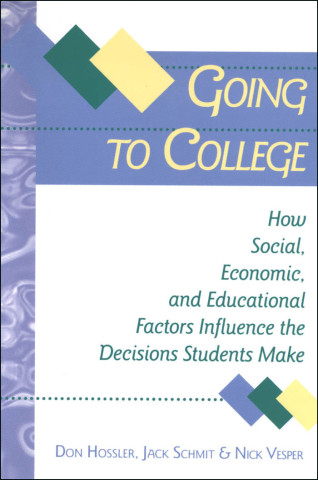
Reviews
In this finely crafted qualitative study of the factors that lead to social stratification between institutions of higher education, Mullen demonstrates that the meaning of a college degree varies for different kinds of students at different kinds of institutions... An important and challenging work.
This well-written and well-conceptualized book improves knowledge of how advantages in social background cumulate over time to produce continued stratification in college-related experiences and outcomes... The theoretical and research-based insights generated by this book provide a useful foundation for education researchers as well as for public and institutional policy makers who seek productive approaches to reducing differences in higher education outcomes based on social background.
Paints a vivid and disturbing picture of the growing class divide in American higher education.
Mullen addresses a lacuna in the evidence base: students' perspectives on their place in the hierarchy, and how they choose a university.
By comparing the experiences of students at institutions only a few miles but worlds apart, Ann Mullen underscores how American higher education perpetuates inequalities in the social order.
Well-researched and carefully presented... Mullen discovered that socioeconomic class continues to influence the structures of opportunity within postsecondary education as well as students’ choices once they are enrolled. Her book highlights the interaction between habitus and institutional mission that results in stratified outcomes within a system of higher education formally structured to be open to all.
This book has a lot of data and information that makes it a must read for anyone who was interested in this topic.
This finely textured study of students at two nearby universities, Yale and Southern Connecticut State, complements the existing heavily quantitative studies of college-going. Mullen’s in-depth interviews capture splendidly the profound differences between students at these two universities in terms of social background and college experiences, revealing a striking degree of stratification.
Degrees of Inequality is a fabulous book in the best traditions of the sociology of education. Theoretically sophisticated, it illuminates the social processes that generate inequality in American higher education. Ann Mullen’s engaging writing style will draw readers to its arguments.
This book shows us two worlds of higher education, differing in the students they attract, how those students decide whether and where to matriculate, what they believe their futures hold, the subjects in which they major, and their very understanding of the meaning of knowledge. A gifted listener and writer, Ann Mullen articulates these different experiences and visions, demonstrates how personal biography and institutional location interact, and tells a story important for anyone who cares about the meaning of higher education today and the forces that may change tomorrow.
Book Details
Acknowledgments
Introduction
1. Yale and Southern
2. The High School Years
3. Dedicing to Go to College
4. Choosing Colleges
5. Going to College
6. Majors and Knowledge
Conclusion
Note on Methodology
Bibliograp
Acknowledgments
Introduction
1. Yale and Southern
2. The High School Years
3. Dedicing to Go to College
4. Choosing Colleges
5. Going to College
6. Majors and Knowledge
Conclusion
Note on Methodology
Bibliography
Index






